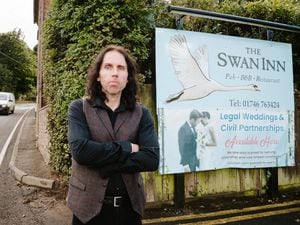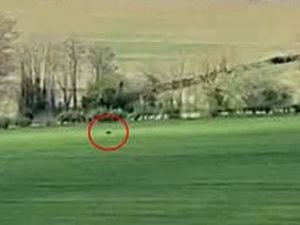Tel Aviv, Israel - travel review
Is it safe? That seems to be the first question everyone wants answering about travelling to Israel.
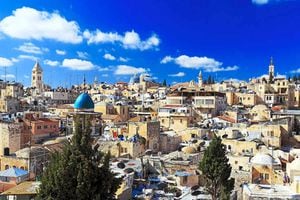
A country known for its religious history has long been locked in conflict with Palestinians and its Arab neighbours over ownership of land considered holy by many different religions.
And with the news around the world at the moment, you would be forgiven for being concerned about flying to a country that seems to conjure up connotations of conflict and war.
But in reality, it has so much more to offer than what you might think – and not just for those interested in its religious attractions.
Israel is huge country where a sophisticated, modern and buzzing city is just hours away from another enshrined in history and holy sites, or from stunning beaches and the famous Dead Sea. Temperatures peak in the summer, with good weather promised almost all year round.
Tel Aviv, the cultural capital, is worlds away from what you might expect. Flashy restaurants, skyscraper shopping centres and plush hotels line the sandy beaches with older parts of the city tucked away. Around every corner is something different, something unexpected.
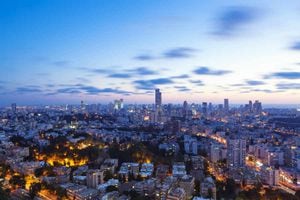
Markets around Tel Aviv attract hundreds, while between the bustle of the city and the historical city of Jaffa sits Hatahana a renovated train station, transformed into bars and restaurants with boutique shops and open park areas.
There aren't many places in the world you can visit a city, a beach, a port and a historical town in one day – yet Israel seems to wrap it all up within miles of each other.
Jaffa, the oldest part of Tel-Aviv, is a former port city famous for its association with the biblical stories of Jonah, Solomon, and Saint Peter as well as the mythological story of Andromeda and Perseus.
After slowly deteriorating over the years, it became associated with crime, before authorities decided to transform the area into a tourist attraction and, with amazing results, filled the city with artists.
Round every corner is a studio, exhibition or museum, including the Ben Zion David Yemenite Silver Art Gallery. Here, visitors can see a renowned artist continue the Yemenite art of filigree, passed down over the years from his ancestors who feature in a museum at the gallery. And it's not the only hidden gem in Jaffa, there seem to be too many to find in a single trip.
With views looking out over the ocean, the Ilana Goor Museum is filled with some of the most unique and bizarre pieces of work made by the artist herself or friends. Unlike any other museum, this is also her home, opened up to visitors during the day and closed for her own time at night.
But while you could spend all your time around Tel Aviv, one of the main reasons to visit Israel has to be Jerusalem – the home to world-renowned holy sites such as the Church of the Holy Sepulchre, the Wailing Wall and the Via Dolorosa – the route Jesus is said to have walked on the way to his crucifixion.
The city is filled with limestone buildings, a regulation forces construction companies to use a minimum amount of the stone in a bid to keep businesses going in the area.
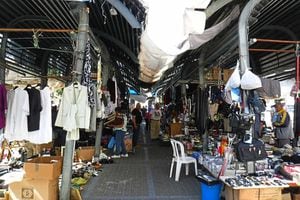
Even as a non-religious visitor, it is easy to be charmed by the stunning views and the grandeur of the city's numerous churches. With a good guide, anyone can be interested by the stories each building tells and with so many religions paying visits to the site it's fascinating to see.
It is impossible to be disappointed by the Church of the Holy Sepulchre – regardless of religion – while the city also offers huge markets along the Via Dolorosa as well as plenty of great places to eat.
The country's Holocaust museum is a short drive from the centre and is a humbling, fascinating experience and is a key part of truly understanding the country's history and heritage.
Nearby is another religious site, Jericho, as well as the famous Dead Sea which takes you to the lowest point on dry land anywhere in the world. The sea is known for being easy to float in, and has mineral enriched mud rather than sand at the bottom of its waters. Dipping into the water, just on the border to Jordan, is an experience and an absolute must for any visitor to Israel.
Even the journey out to the sea is fascinating. The area is plagued by sinkholes due to the high mineral content of the water. Everywhere you look, roads have been cut short and rerouted, hotels have fallen into the earth, and the area is left sparse and empty.
Looking over the waters is Masada, an ancient fortress and the symbol of the last stand of Jewish patriots against the Roman army in 73 AD. The site itself is interesting, but the views are unbelievable.
With so much to see, and so many places to visit in Israel, it seems odd to think it's not a tourist hot spot. The airline Monarch has been operating direct flights to Tel Aviv from the south of the UK for a number of years, but thanks to a growing Jewish community further north, it has launched direct flights from Manchester.
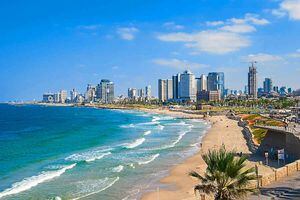
The airline said it was a great market for the company, which is now desperate to show the country is not exclusively for religious visitors. And it's true. The concerns over safety seem to have put the country on the back burner but as long as visitors act as they would in any other country it seems unlikely they would encounter any danger.
Having said that, it's very different from here – higher security at the airport and armed police in the street – but at no point did I feel unsafe, or remotely worried about conflict. You'll be far too busy soaking up the sun, enjoying the views and learning about the country's fascinating history to worry about anything else.

